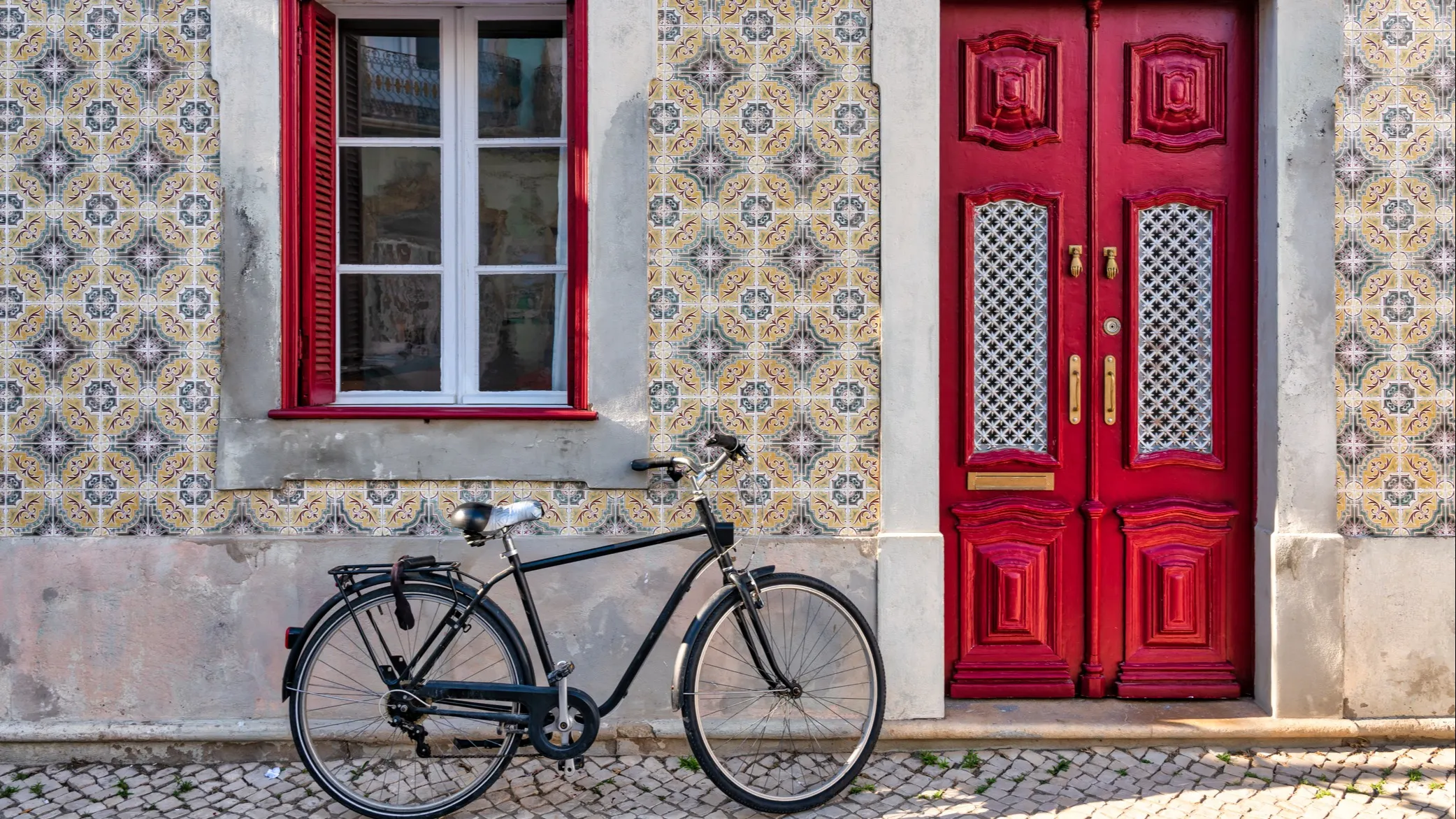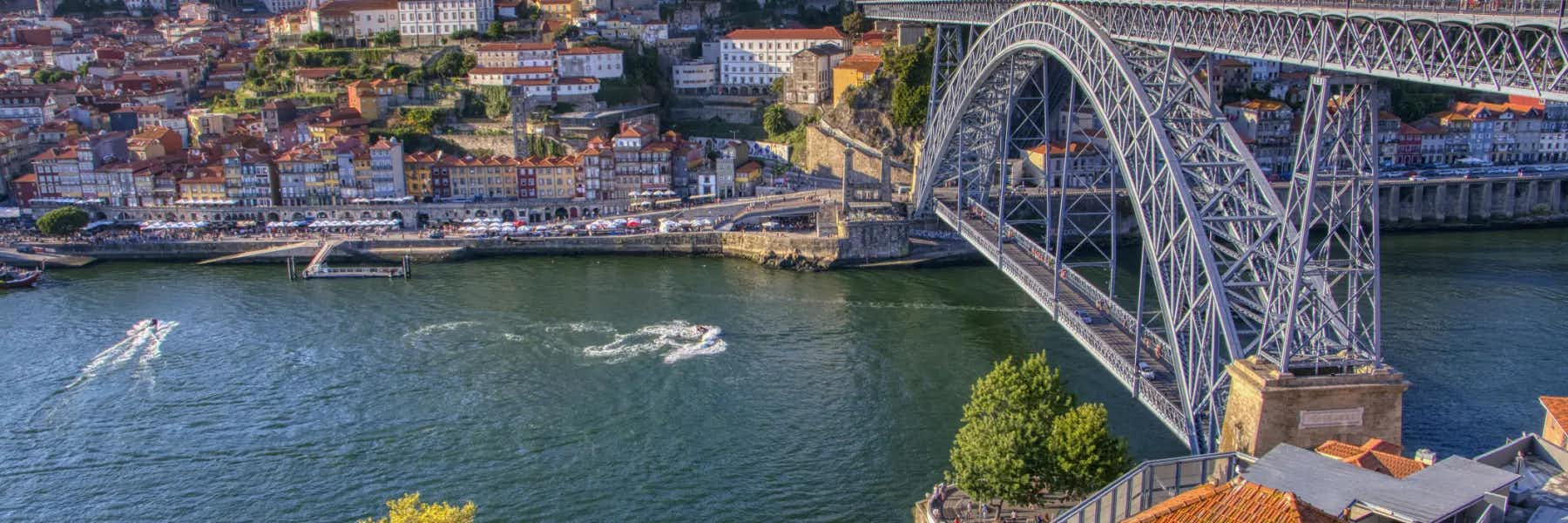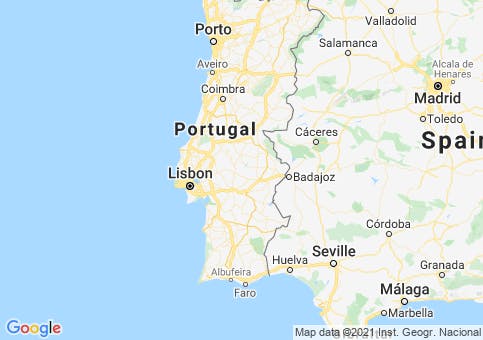Retiring in Europe can be an affordable option for North Americans if they look to sunny Portugal. A once-hidden gem, this tiny country on the west coast of the Iberian Peninsula is continually rated as one of the safest in the world, with high-quality healthcare, and English-speaking locals.
Depending on lifestyle, retirees can expect to spend less money than back home, while enjoying a higher quality of life, and never having to worry about safety nor gun violence.
Portugal is one of the fastest-aging countries in Europe, where retirees are treated with respect and well cared for by the health system. According to a study by Pordata, there are 182 older adults for every 100 younger ones.
With abundant sunshine and mild winters, Portugal is also ideal for an active retirement.
Preparation
For those considering retiring to Portugal, the first step is to actually visit the country, explore from one end to the other, and connect with expats on social media groups who have already taken the plunge.
Ask yourself what you need to be happy during your retirement years. Do you want to live in a big city, or a small town? Looking to live around other expats for socializing, or would you prefer to be living alongside native Portuguese? Do you plan to have a car? Prefer to live near the beach, or in the mountains?
Get Your Free Portugal Report Today!
Get Your Free Portugal Report Today!
Discover why we love a slower pace of life in Portugal and info on other European countries in our daily postcard e-letter. Simply enter your email address below and we’ll send you a FREE REPORT – Explore the Old World in Laidback Portugal.

By submitting your email address, you will receive a free subscription to IL Postcards, The Untourist Daily and special offers from International Living and our affiliates. You can unsubscribe at any time, and we encourage you to read more about our Privacy Policy.
Portugal has expat communities throughout the country where it’s easy to fit in, make friends, and enjoy life right from the start. Areas like Porto, Lisbon, the Silver Coast, and the Algarve all have well-established expat communities.
You can visit Portugal for up to 90 days out of every six-month period simply as a tourist. This may be an option for those who wish to live only part-time in Portugal. But for anyone who wishes to remain in Portugal for longer than three months at a time, it will be necessary to apply for a long-stay resident visa. The visa process begins at VFS Global for Americans and at your local Portuguese consulate or Canadian embassy. Applying for a visa must be done from your home country and cannot be done in Portugal. After living in Portugal for five full years, you can request permanent residency or citizenship; both require a certain level of proficiency in Portuguese.
Residents of Portugal have access to both the public and private healthcare systems. Private health insurance is affordable and required for everyone who applies for a resident visa.
Living Costs
Depending on where you currently live in North America, Portugal can offer a lower cost of living and a better quality of life.
Most of your budget in Portugal will be for housing, either rent or a mortgage. City dwellers will appreciate that the overall cost of living in Lisbon, for example, is 50% less than in New York City. Rents in Lisbon, for example, clock in at an average of 65% less than in New York. Seniors over 65 can also use all public transport in Lisbon for free, a nice perk for those without a car.
For those moving to Portugal on smaller budgets, renting or buying property costs far less inland away from the popular coastal havens. Rents in smaller, rural communities inland can be found for €500 but can increase to €1,100 or more in larger cities and popular parts of the Algarve. Depending on lifestyle, a couple can live in Portugal for €2,500 to €3,000.
Dining out in Portugal is not only affordable, but downright delightful. Sit for hours with friends, sipping €2 glasses of Portuguese wine, and enjoying fresh seafood and other delicacies for around €10 to €12 per entrée. End your meal with a cup of espresso for less than one euro and add a custard tart, recently voted the best dessert in the world, for just a bit more. Some restaurants even offer patrons a free shot of alcohol before leaving, claiming it’s simply a way to help the food digest.
Portugal grows most of the fruits and vegetables it sells, so there are plenty of healthy eating options. And since the Atlantic Ocean flanks the country, fresh fish and seafood are abundant everywhere. Breads are baked fresh at corner bakeries and can become addictive because they’re so good. North Americans will find Portugal grocery prices significantly lower than what they used.
Healthcare
The most significant savings for any American who chooses to live abroad will be the cost of healthcare. Early retirement is even a possibility as healthcare costs will be significantly lower in Portugal, and the quality of healthcare is just as good, if not better. Rated number twelve in the world by the World Health Organization, Portugal offers some of the best healthcare on the planet. Doctors in Portugal aren’t rushing; they take their time getting to know the whole person and their extensive health history before deciding on a plan of action.
Foreign expats in Portugal will have access to the public and private healthcare system. Private health insurance is affordable and offers high- and low-end options, depending on one’s healthcare needs. Expats must carry private health insurance for the duration of their temporary visa.
Private health insurance plans start at €50 a month for the average person, but prices will increase with age, pre-existing conditions, and the type of policy chosen. Some expats choose lower-end insurance plans with coverage of only 50% if they have little to no need for it, while others opt for high-end plans that cover 90% with no deductibles. Younger retired expats living in Portugal can expect to pay even less.
Some necessary items like insulin and certain medications can be obtained free of charge from the public system. Although the public system is available to expats, there can be long wait times to see a specialist or have a procedure done. Therefore, many expats and Portuguese prefer to use the private system.
In the private healthcare system, hospital websites offer a comprehensive list of providers, including what languages they speak, their qualifications, and the scope of their practice. Appointments can be made through the clinics website, or by calling a central phone line where English is an option. Doctors’ offices are in the hospital complex, making it ideal for further testing.
Private hospitals throughout Portugal are similar to their U.S. counterparts, with private rooms, the latest technology, and English-speaking doctors of one’s choosing. Costs average around €200 per day, including all medications, staff, food, and accommodations. Expats in Portugal can expect to pay €1,500 for an entire week in a private hospital with no insurance or as little as €250 with an insurance plan in place.
In the public healthcare system, residents are seen in a clinic by whatever doctor is in attendance that day. There is no choice of doctors, and they may not speak English. In public hospitals, patients are triaged through crowded units and put into wards with many other patients if admitted.
Get Your Free Portugal Report Today!
Get Your Free Portugal Report Today!
Discover why we love a slower pace of life in Portugal and info on other European countries in our daily postcard e-letter. Simply enter your email address below and we’ll send you a FREE REPORT – Explore the Old World in Laidback Portugal.

By submitting your email address, you will receive a free subscription to IL Postcards, The Untourist Daily and special offers from International Living and our affiliates. You can unsubscribe at any time, and we encourage you to read more about our Privacy Policy.
Early retirees in Portugal often tell of how they left behind monthly health insurance premiums of thousands per month to find themselves paying just a few hundred in Portugal. Without insurance, even paying out-of-pocket to see a doctor in Portugal will not break the budget. Depending on the provider’s specialty, costs begin around €50 for a general practitioner and may go as high as €90 for a specialist in a private hospital.
Pharmacies can be found on almost every corner and offer an array of medications at low prices. With a prescription, medication costs will be less, but medicine can often be purchased at a slightly higher price without one. Before relocating to Portugal, check the Infarmed website to see if the medications you are currently taking are available.
Popular expat havens in the Algarve, Porto, and Lisbon offer top-notch hospitals and physicians. Some well-known names are Hospital Particular do Algarve, Lusiadas, Hospital da Luz, and CUF. Centro Neurological Senior in Torres Vedras specializes in Parkinson’s and Alzheimer’s care and is said to be some of the best in the world.
Safety

Portugal is one of the safest countries in the world, where guns are permitted only for hunting and requires extensive police background checks and paperwork to obtain. Owning a gun for protection is not allowed. Even in major cities, violent crime is low, and females or the elderly can walk outside safely, even at night.
Popular Destinations
Transitioning into expat life in popular destinations with established expat communities can be easy.
Lisbon, the nation’s capital city, is vibrant with nightlife, culture, and public transport, making it easy for expats to settle into their new life. It’s a sizable city, perfect for foodies, museum lovers, and those who thrive best on big-city living. Seniors over 65 are offered free use of all public transport in Lisbon.
Porto, in the north, is Portugal’s second city with a colorful riverfront area, gastronomy galore, and the famed port wine cellars along the banks of the Douro River. Public transport abounds, which could eliminate the need for a car for those willing to navigate the hilly terrain.
The Silver Coast has also become popular for its low cost of living, rural vibe, and lush rolling hills. The spa town of Caldas da Rainha is a mix of old-world charm and modern comforts. A bus station links Lisbon and the rest of the country—the perfect spot for those who prefer spring-like temperatures year-round with cool, wet winters and warm summers.
For some of the best weather in all of Europe, the Algarve can’t be beat. Hot, dry summers and mild winter temperatures bring little rain and plenty of sunshine. Towns like Lagos offer a charming walled old town and picturesque coastline, and Tavira sits along a picturesque river and is just a short drive to the Spanish border.
English-speaking expats from North America and the rest of the world can be found in all of these destinations, making it easy to connect and establish friendships.
Portugal is home to over half a million foreigners from around the world. Retirement in Portugal can be an affordable adventure, safe from gun violence, with low cost, excellent healthcare, year-round mild weather, and plenty of friends just waiting to meet you.
Get Your Free Portugal Report Today!
Get Your Free Portugal Report Today!
Discover why we love a slower pace of life in Portugal and info on other European countries in our daily postcard e-letter. Simply enter your email address below and we’ll send you a FREE REPORT – Explore the Old World in Laidback Portugal.

By submitting your email address, you will receive a free subscription to IL Postcards, The Untourist Daily and special offers from International Living and our affiliates. You can unsubscribe at any time, and we encourage you to read more about our Privacy Policy.
Common FAQs About Retiring in Portugal
How Much Money Do You Need to Retire in Portugal?
Portugal offers arguably the lowest cost of living in Western Europe. a couple can live comfortably in Portugal’s interior for about $1,700 a month. The budget for larger cities such as Lisbon is about $2,100 or $2,200 a month.
Where is the Best Place to Retire in Portugal?
Portugal has many great options for expats to retire to. You can retire in one of the many beautiful cities such as Lisbon and Porto. If beach living is what you dream of then The Algarve has many great retirement towns such as Lagos and Faro.
Is Portugal a Good Place to Retire?
Portugal is the winner of the 2023 Annual Global Retirement Index. Our on-the-ground experts believe it to world's best place to retire. Based on the cost of living, climate, healthcare on offer, and overall quality of life Portugal is a great place to retire.
How Can a U.S. Citizen Retire in Portugal?
U.S. citizens can retire in Portugal with relative ease. The most common visa for U.S. and Canadian citizens looking to live in Portugal is the Type 1 visa. This visa is issued to persons who intend to reside in Portugal permanently for retirement among other reasons.












